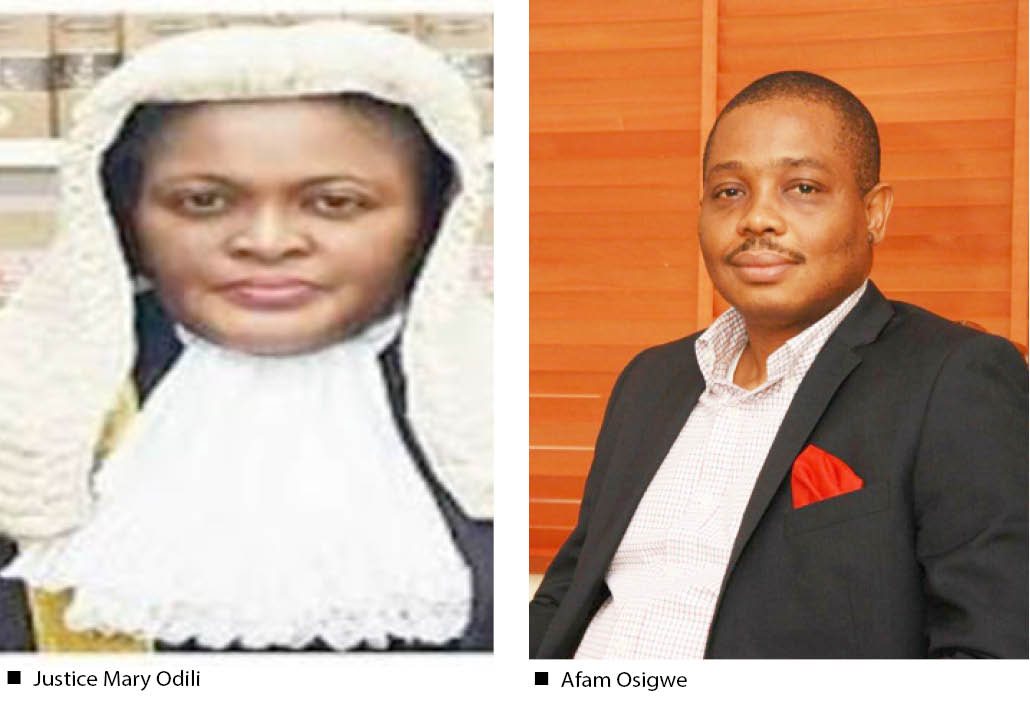From house construction site, where he was one of the workers in Ado-Ekiti, Ekiti State on July 15, 2012, Oluwatuyi Ebenezar began a journey that would have been the one of no-return.
When police raided the building for suspects of an armed robbery incident that occurred in the nearby building, he was arrested alongside others and was sentenced to death by a High Court in Ado-Ekiti on June 13, 2014. The judgement was affirmed by the Court of Appeal, Ado-Ekiti Division on December 29, 2019.
But a Supreme Court panel presided by Justice Mary Odili on January 14 quashed the conviction of Oluwatuyi. The panel also discharged and acquitted him of the charges of armed robbery.
The panel upheld the submission of the convict’s counsel, Afam Osigwe Esq. that the lower courts pre-judged the main issue at an introductory stage of the judgment when they held that the evidence was overwhelming in pinning the appellant to the scene of the robbery.
Osigwe had argued that by making the statement that the evidence before the court “overwhelmingly” pinned the Appellant to the scene of the robbery, “The Court Below before examining the whole evidence both oral and documentary tendered before the trial court, greatly prejudiced the case of the Appellant and therefore undermined his right to fair hearing.”
“Considering the stage at which the Court Below made the pronouncement in its judgment, it rightly leaves the inescapable conclusion that the Court Below had made up its mind about Appellant’s guilt before proceeding to consider his appeal,” he said.
The accused persons were alleged to have on July 15, 2012 invaded the home of a judge of the high court, Justice Michael Agbelusi at Egbewa GRA, behind Judges’ Quarters, off NTA Road, Ado-Ekiti, armed with guns. The criminals allegedly robbed him of three Nokia handsets, a signed cheque of N90, 000 and the sum of N35, 000.
Justice Agbelusi subsequently reported the incident to the police the following day and arrests were made at the building site, which included Oluwatuyi and three others. The accused persons were arraigned before the High Court of Ekiti State, Ado Ekiti on a two-count charge contrary to Section 1(2)(a) of the Robbery and Firearms (Special Provision) Act CAP R.11 of the Laws of the Federation of Nigeria, 2004.
But Oluwatuyi and his supervisors denied the allegations, and maintained that he had been on the building site as a construction worker.
Justice Agbelusi and his daughter, Temitope Agbelusi testified that they had identified Oluwatuyi at the police station as the fellow who switched on the light and pointed a gun at him by the cloth he was still wearing after the ‘robbery’.
In his Notice of Appeal to the Supreme Court dated of 25th January, 2016, after taking over the matter on pro bono basis, Osigwe had challenged Justice Agbelusi’s testimony on the grounds that he did not give any description of Oluwatuyi to the police when he went to report the incident. He added that he only identified him after police paraded him.
Oluwatuyi, who worked as a bricklayer and sleeps in the same building with nine others at the site next to the judge’s residence, was arrested in the course of a raid by the police.
Thus, Osigwe further submitted in issue three that the Court of Appeal was wrong to affirm the conviction of the Appellant without an “independent evidence linking him to the commission of the offence of armed robbery.”
He submitted that although the lower court ruled that it was not necessary to conduct an identification parade, since the Appellant was arrested during a raid by the police and not because of the description by the complainant, “the failure to conduct a proper identification parade was fatal to the prosecution’s case.” He cited Mbenu V. The State (1988) 3 NWLR (Pt.84) 615; Adamu V. The State (1986) 3 NWLR (Pt.32) 865.
The lawyer, citing Ateji v. The State (1976) 2 SC 79 at 93 – 94 – per Nasir, JSC, and Opayemi V. The State (1985) 2 NWLR (Pt.5) 101, had also submitted that the entire evidence at the “scene of the crime is fundamentally defective such that it cannot meet the requirement of proof beyond reasonable doubt.”
He pointed out the contradictions in the victim’s testimony during the trial that the accused persons switched on his reading lamp that he could see his face vividly, when under cross examination, he also stated that the light was put on before he went to bed, and had also admitted in another question that he goes to bed with the light off.
After spending eight years in prison and going from inmate on death row to freedom, the lawyer said Oluwatuyi will not challenge the matter or seek any compensation from the prosecution or the complainant.
“All we want is to get the enrolled judgment and serve the Nigerian Correctional Service in Ado-Ekiti so that he can regain his freedom and rebuild his life,” Osigwe said.

 Join Daily Trust WhatsApp Community For Quick Access To News and Happenings Around You.
Join Daily Trust WhatsApp Community For Quick Access To News and Happenings Around You.


